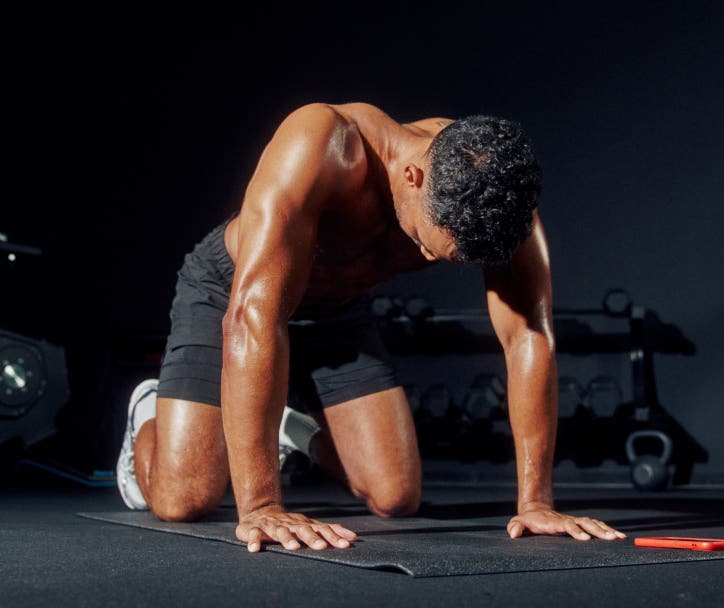It’s no secret that at Freeletics, we’re all about balance. We’ve already detailed everything you need to know about taking an 80/20 approach to nutrition, but many people are unsure if this also applies to alcohol. Especially when we see alcohol so prevalently tied to fitness like having a “finisher beer” at the end of a race or yoga and wine events.
And while a drink here and there won’t completely derail your progress, it’s important to know the effects alcohol has on your body and your overall athletic performance.
It’s time to get uncomfortable with the negative impacts of alcohol. Let’s dive in!
Even small quantities are harmful
First things first, it doesn’t always matter how much alcohol you drink. Even small amounts of alcohol can have adverse effects on athletic performance and overall health.
What you consider only a couple of small glasses of wine could still disrupt your sleep, impair nutrient absorption, and affect hormone levels.1 And these cumulative effects of alcohol, even in small quantities, can impact your performance and ultimately might keep you from progressing towards your fitness goals.
Understanding the impacts that alcohol can have, from poor sleep to weakened immune function, highlights the importance of moderation or potentially nixing alcohol temporarily (or for good) to achieve a certain fitness goal.
Poor sleep quality
Alcohol's sedative effects may initially help you catch some zzz’s, but it’s not of the restorative kind. In fact, one of the most immediate effects of alcohol on athletic performance is its impact on the quantity and quality of sleep.
Having a few drinks, especially before bedtime, can reduce rapid eye movement (REM) sleep and lead to more fragmented sleep patterns.2 REM sleep is crucial for cognitive functions and muscle recovery, both of which are essential for athletic performance. And the negative effects don’t stop there – disrupted sleep can also result in slower reaction time, impaired judgment, and even longer recovery times.
These disruptions prevent you from achieving those oh-so-good-for-you deep sleep stages necessary for muscle repair and growth. As a result, poor sleep quality can lead to increased fatigue, decreased motivation, and a dip in your performance during workouts or competitions.
Dehydration
Dehydration is another downside of hitting that happy hour post-workout. Alcohol is a diuretic, which means it increases urine production and can lead to dehydration.3 Dehydration impairs physical performance by affecting cardiovascular function, increasing the risk of heat stress, and reducing endurance.
For athletes specifically, maintaining proper hydration is incredibly important to nail your performance and boost recovery. Dehydration can lead to reduced strength, decreased endurance, and impaired cognitive function, all of which can negatively impact training and competition outcomes.
To stay on top of your game, it's key to hydrate before, during, and after exercise.

Disrupting nerve signals
Alcohol affects the nervous system by impairing the transmission of nerve impulses. It disrupts the function of neurotransmitters, which are nerve signals that allow us to move and control our bodies.
What does that mean in terms of athletic performance? Properly functioning nerve signals are needed when performing complex movements like a Handstand Pushup. This movement requires you to coordinate multiple muscles simultaneously to keep your body in an upside-down position while combining balance, strength, and stability to lower yourself down and push back up.
Additionally, alcohol’s impact on your nerve function can affect your coordination and slow your reflexes, which can ultimately hinder your performance and increase the risk of injury.
Weakening of the immune system
If you’re not feeling 100%, it’s probably best to steer clear of alcohol. Drinking alcohol can weaken the immune system, making you more susceptible to illness and infections. Alcohol disrupts the production and function of immune cells, reducing the body’s ability to fight off pathogens and recover from injuries.
A weakened immune system can lead to increased downtime due to illness or injury, putting a snag in your training progress and overall performance. For athletes, maintaining a strong immune system forms the foundation for consistent training. Plus, alcohol’s detrimental effects on immune function can undermine all those hard-earned sweat sessions.
Interfering with nutrient uptake
Alcohol interferes with the body’s ability to absorb and utilize essential nutrients. It impairs the digestive system, reducing the absorption of key vitamins and minerals, such as vitamin B12, magnesium, and zinc.4
These nutrients are vital for energy production, muscle function, and overall health. Indulging in a few boozy drinks can also lead to electrolyte imbalances, which are important for maintaining fluid balance and muscle function.
Ultimately, it could also affect your ability to recover from intense training sessions and reduce your performance as a whole. To stay on top of your game, swap cocktails for a mocktail to ensure adequate nutrient intake, optimal energy levels, and feeling your strongest, fittest self.

Increased stress levels
Another negative effect that alcohol has on athletic performance is its effect on stress levels. Having a drink or two can increase the production of cortisol, a stress hormone that can have various negative effects on the body.
Elevated cortisol levels are associated with increased muscle breakdown, decreased protein synthesis, and reduced immune function.
In addition, chronic alcohol consumption is associated with persistently high cortisol levels, which can contribute to chronic stress and its resulting health problems. This constant state of stress can have ripple effects on your performance, as well as hinder your recovery and overall well-being.
To perform at your best, managing stress effectively is key, and drinking alcohol can derail any efforts to maintain optimal levels of training and recovery.
Lower levels of growth hormones
Alcohol intake can also significantly reduce the secretion of growth hormone (GH) during sleep. This is a big deal for athletes specifically because growth hormones play a critical role in repairing and building muscle tissue.
Lower levels of growth hormone can lead to decreased muscle mass, slower recovery times, and reduced strength. At the end of the day, alcohol's impact on hormone levels can undermine all the hard work you’ve put in and limit your progress.
Alcohol makes you fat
For most people, a major drawback of drinking alcohol is that it can cause weight gain and fat accumulation, which is the last thing you want if you’re goal is to lose weight.5
Alcohol is calorie-dense, with approximately seven calories per gram, which is nearly as calorie-rich as fat, but without any nutritional benefit. These extra calories can add up fast if they’re not offset by increased physical activity or adjustments in your diet.
To double down, alcohol can also alter your metabolism by increasing fat storage and reducing the body’s ability to burn fat effectively. And this change can increase your body fat percentage, potentially pushing you further from your goals and also tanking your overall performance and fitness level.
Let’s recap
We’re all about balance and having a good time, but facts are facts. And the truth is that alcohol can significantly undermine your athletic performance in a variety of ways. Poor sleep quality, impaired nutrient uptake, increased stress levels, and weakened immune function just to name a few. Even just that small glass of wine can have harmful effects, affecting growth hormone levels, contributing to weight gain, and causing dehydration.
If you’ve got big goals and are committed to your fitness, it’s in your best interest to steer clear of alcohol or consume it in moderation to maintain peak performance and overall health. Knowledge is power, and understanding these effects highlights the need to make smart choices about alcohol to support both your training and recovery.
Sources
[1] Ellis, R., & Maughan, R.J. (2010). Alcohol and the athlete: Implications for performance. Journal of Sports Sciences, 28(7), 769-777. https://doi.org/10.1080/02640411003711950
[2] Ehrenberg, B.L., et al. (2010). The impact of alcohol on sleep quality. Alcohol Research & Health, 33(2), 214-223. https://doi.org/10.1016/j.psyneuen.2009.08.008
[3] Maughan, R.J., et al. (2016). Alcohol and dehydration: Mechanisms and effects. Journal of Sports Sciences, 34(20), 1986-1992. https://doi.org/10.1080/02640414.2016.1140214
[4] Gao, X., et al. (2009). The impact of alcohol on the absorption and metabolism of essential nutrients. Nutrition Reviews, 67(3), 191-204. https://doi.org/10.1111/j.1753-4887.2009.00152.x
[5] Mann, T., et al. (2000). The caloric content of alcoholic beverages: Implications for weight gain. Journal of Clinical Nutrition, 71(6), 1407-1413. https://doi.org/10.1093/ajcn/71.6.1407